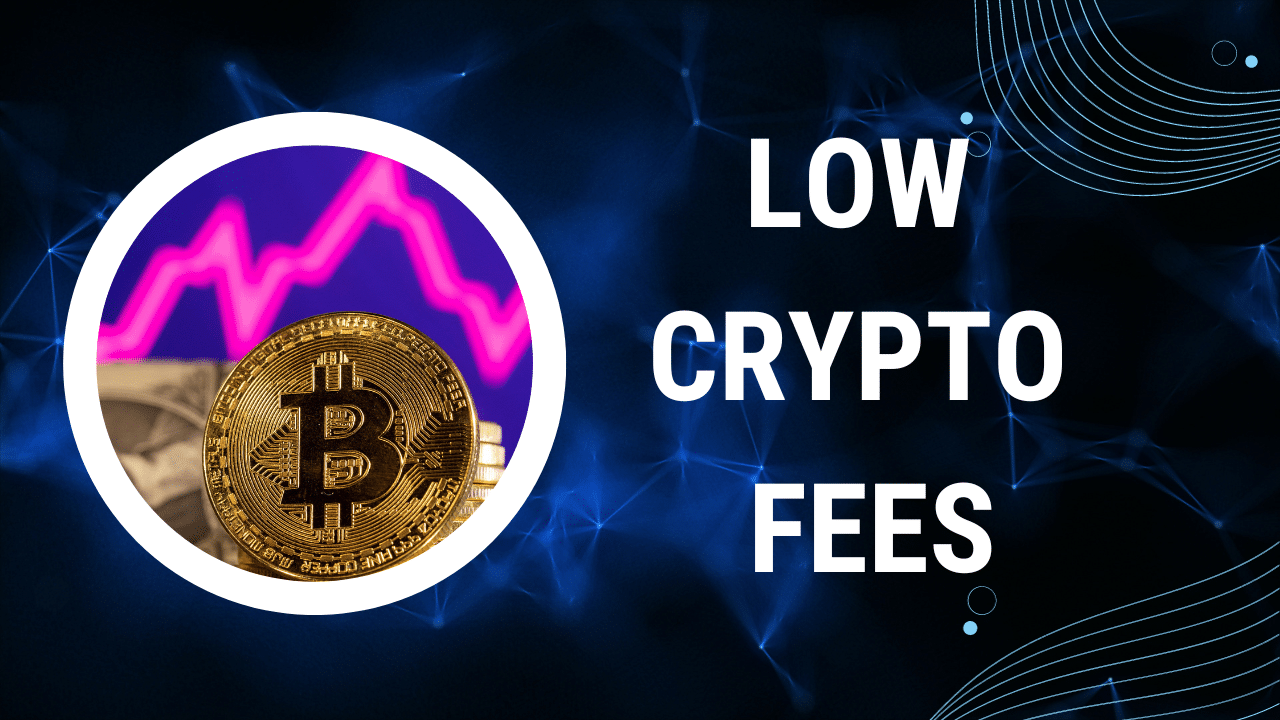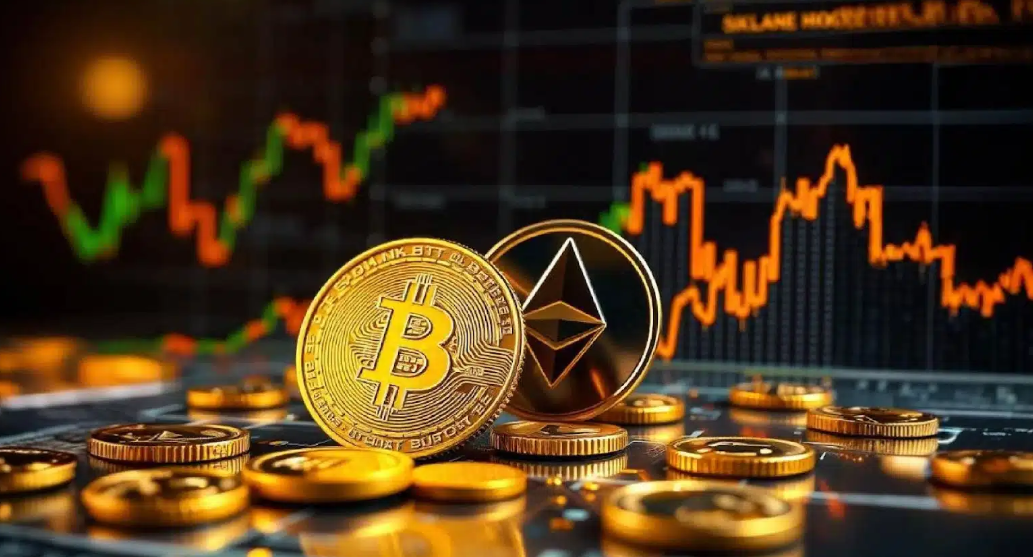The best way to find exchanges with the lowest transaction fee crypto is to do your research and compare fees across multiple exchanges. Some exchanges may have lower fees for specific cryptocurrencies, while others may offer discounted fees for high-volume traders.
Understanding the lowest transaction fee crypto

Cryptocurrencies have taken the financial world by storm, offering a decentralized and secure way to conduct financial transactions. One of the key benefits of using the lowest transaction fee crypto is the significantly lower transaction fees compared to traditional banking systems.
However, not all cryptocurrencies have low transaction fees. In fact, some cryptocurrencies have notoriously high transaction fees, making it difficult for users to engage in daily transactions. In this blog post, we will dive deep into the world of the lowest transaction fee crypto, compare the fees among different cryptocurrencies, discuss factors that affect the fees, and provide strategies for minimizing them.
Comparison of the lowest transaction fee crypto among Different Cryptocurrencies
When it comes to transaction fees, not all cryptocurrencies are created equal. Some have high fees, while others offer remarkably low fees. Let’s take a look at the transaction fees of some popular cryptocurrencies:
| Cryptocurrency | Transaction Fee |
|---|---|
| Bitcoin | $2.30 |
| Ethereum | $0.19 |
| Litecoin | $0.04 |
| Ripple | $0.0004 |
| Bitcoin Cash | $0.0014 |
From this table, we can see that Bitcoin has the highest transaction fee among these popular cryptocurrencies. This is due to the limited block size of 1 MB in Bitcoin’s blockchain, which leads to a slower transaction speed and higher fees.
On the other hand, Ripple has the lowest transaction fee, thanks to its unique technology that allows for faster and cheaper transactions. However, it’s important to note that transaction fees can vary depending on the current network congestion and the size of the transaction.
Factors Affecting the lowest transaction fee crypto
Now that we have seen the difference in transaction fees among different cryptocurrencies, let’s explore the factors that affect the lowest transaction fee crypto.
Network Congestion
One of the main factors that affect the lowest transaction fee crypto is network congestion. When the network is busy with a high volume of transactions, miners prioritize transactions with higher fees to be included in the next block. This means that if you choose the lowest transaction fee crypto, it may take longer for your transaction to be processed. As a result, users may end up paying higher fees to ensure their transactions are processed quickly.
Transaction Size
The size of the transaction also plays a role in determining the transaction fee. In most cryptocurrencies, the larger the transaction size (measured in bytes), the higher the fee. This is because larger transactions require more data to be stored on the blockchain, which requires more resources from the miners.
Blockchain Technology
Each cryptocurrency has its own unique technology and protocol, which can affect the transaction speed and fees. For example, Bitcoin’s block size limit and slower block confirmation time lead to higher fees, while newer cryptocurrencies like Ethereum have faster block confirmation times and lower fees.
Strategies to Minimize the lowest transaction fee crypto
Now that we understand the factors that affect transaction fees, let’s look at some strategies to minimize the lowest transaction fee crypto.
Choose the Right Time to Send Transactions
As mentioned earlier, network congestion plays a significant role in determining transaction fees. If you’re not in a hurry to process your transaction, it’s best to wait for the network to calm down and the fees to go down. This usually happens during off-peak hours when there are fewer transactions being processed.
Use Segregated Witness (SegWit) Addresses
SegWit is a protocol upgrade that was added to Bitcoin in 2017. It separates transaction signatures from the data in a block, reducing the amount of data needed to store a transaction on the blockchain. This results in lower transaction fees, as smaller transactions require less data to be stored on the blockchain.
Utilize Layer 2 Solutions
Layer 2 solutions, such as the Lightning Network, are designed to help reduce the burden on the main blockchain and lower transaction fees. These solutions allow for off-chain transactions that do not need to be stored on the blockchain until they are completed. This reduces the overall data stored on the blockchain and therefore lowers transaction fees.
Popular Cryptocurrencies with Low Transaction Fees
If you’re someone who frequently makes cryptocurrency transactions, it’s important to choose a cryptocurrency with low transaction fees. Here are some popular the lowest transaction fee crypto:
Ripple (XRP)
As mentioned earlier, Ripple has one of the lowest transaction fee crypto among major cryptocurrencies, making it a popular choice for daily transactions.
Stellar (XLM)
Stellar is another cryptocurrency that offers the lowest transaction fee crypto. With a focus on cross-border payments and fast transaction speed, Stellar boasts an average transaction fee of just $0.00002.
Nano (NANO)
Nano is a newer cryptocurrency that utilizes a unique block-lattice structure, allowing for instant and fee-less transactions. This means that users can send and receive Nano without any transaction fees.
The Impact of the lowest transaction fee crypto
Transaction fees can significantly impact the profitability of crypto trading. If you’re a frequent trader, even small transaction fees can add up and eat into your profits. Therefore, it’s important to take transaction fees into consideration when choosing the lowest transaction fee crypto which cryptocurrency to trade and which exchange to use.
How to Find the lowest transaction fee crypto

Now that we understand the importance of the lowest transaction fee crypto, let’s look at how to find exchanges with the lowest transaction fee crypto.
Research and Compare Exchange Fees
The best way to find exchanges with the lowest transaction fee crypto is to do your research and compare fees across multiple exchanges. Some exchanges may have lower fees for specific cryptocurrencies, while others may offer discounted fees for high-volume traders.
Consider the Withdrawal Fees
While some exchanges may have lthe lowest transaction fee crypto, they may have higher withdrawal fees. This means that you may end up paying more in total if you frequently withdraw your funds from the exchange.
Look for Discounts and Promotions
Many exchanges offer discounts and promotions to attract new users or reward loyal customers. Keep an eye out for these and take advantage of them to save money on transaction fees.
Analyzing the Cost of Transactions in Various Cryptocurrencies
To get a better understanding of how transaction fees can impact your overall cost of using cryptocurrency, let’s look at an example comparing two popular cryptocurrencies: Bitcoin and Ethereum.
Assuming you want to make a $100 transaction, here’s a breakdown of the costs involved:
| Cryptocurrency | Transaction Fee | Exchange Fee (0.5%) | Total Cost |
|---|---|---|---|
| Bitcoin | $2.30 | $0.50 | $3.80 |
| Ethereum | $0.19 | $0.50 | $2.69 |
As we can see from this table, even though the transaction fee for Bitcoin is higher, the total cost for using Bitcoin is still lower due to its lower exchange fee. However, this may vary depending on the exchange and the current network congestion.
Tips for Saving Money on Crypto Transaction Fees
Here are some additional tips for saving money on the lowest transaction fee crypto:
- Consolidate smaller transactions into one larger transaction to minimize fees.
- Use exchanges that allow for off-chain transactions to reduce the burden on the main blockchain.
- Consider using decentralized exchanges that have lower fees.
- Take advantage of discounted fees during off-peak hours.
- Keep an eye out for updates and improvements to blockchain technology that may lead to lower fees.
Future Trends in the lowest transaction fee crypto
As cryptocurrencies continue to gain popularity and adoption, we can expect to see improvements in transaction fees. With advancements in blockchain technology and the implementation of layer 2 solutions, we may see even lower or even fee-less transactions in the future.
Future Trends in Transaction Fees for Cryptocurrencies
As cryptocurrencies continue to gain popularity and adoption, the future trends in transaction fees are expected to evolve. Here are some potential developments to look out for:
Scalability Solutions
Scalability has been a major challenge for many blockchain networks, leading to congestion and high transaction fees during peak times. However, with ongoing research and development, scalability solutions such as sharding, sidechains, and off-chain processing are being explored to increase transaction throughput and reduce fees.
Enhanced Privacy Features
Privacy-focused cryptocurrencies are gaining traction due to their emphasis on anonymity and security. As more users prioritize privacy in their transactions, we may see advancements in privacy features that allow for confidential and cost-effective transactions.
Sustainable Blockchain Networks
The environmental impact of blockchain networks, particularly proof-of-work consensus mechanisms used by cryptocurrencies like Bitcoin, has raised concerns about energy consumption. Future trends may involve transitioning towards more sustainable consensus algorithms, such as proof-of-stake, to reduce energy costs and lower transaction fees.
Interoperability Solutions
Interoperability between different blockchain networks is crucial for seamless transactions across multiple platforms. Projects focusing on interoperability, such as cross-chain bridges and atomic swaps, aim to facilitate efficient and affordable transactions between diverse cryptocurrencies, potentially reducing fees associated with conversions.
Regulatory Developments
Regulatory clarity plays a significant role in shaping the cost structure of cryptocurrency transactions. As governments worldwide establish clearer guidelines for the crypto industry, compliance costs may impact transaction fees. Future trends in regulatory frameworks could influence fee structures and operational expenses for cryptocurrency transactions.
Conclusion
In conclusion, understanding transaction fees in cryptocurrency is essential for maximizing cost-efficiency and optimizing user experience. By comparing fees among different cryptocurrencies, considering factors that affect transaction costs, and implementing strategies to minimize fees, users can navigate the complex landscape of transaction fees effectively.
Choosing popular cryptocurrencies with low transaction fees, such as Ripple, Stellar, and Nano, can help reduce costs for frequent transactions. Additionally, being mindful of the impact of transaction fees on crypto trading and actively seeking exchanges with the lowest fees can enhance overall profitability.
Analyzing the cost of transactions in various cryptocurrencies provides valuable insights into the total expenses involved in using different digital assets. By following tips for saving money on crypto transaction fees and staying informed about future trends in fee structures, users can adapt to evolving developments in the crypto space and capitalize on cost-effective transaction methods.
As the cryptocurrency industry continues to innovate and mature, future trends in transaction fees are likely to focus on scalability, privacy, sustainability, interoperability, and regulatory compliance. By staying informed and proactive in managing transaction costs, users can navigate the evolving landscape of transaction fees with confidence and efficiency.





